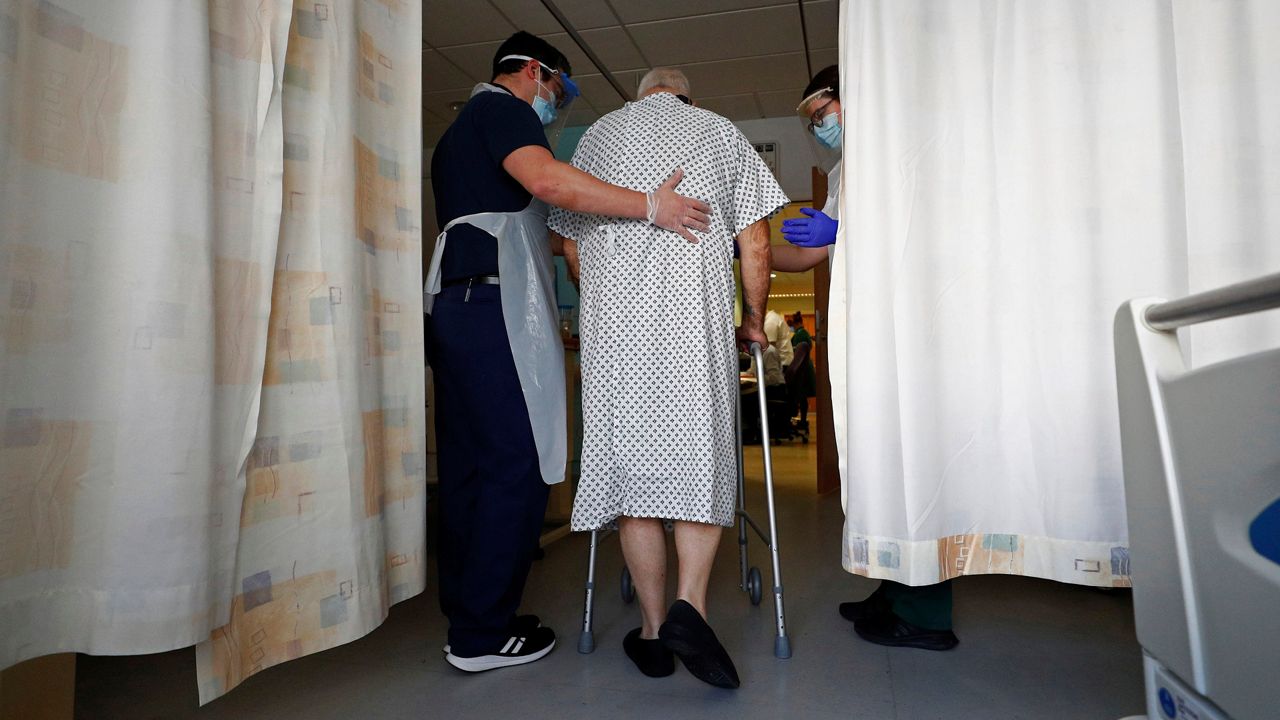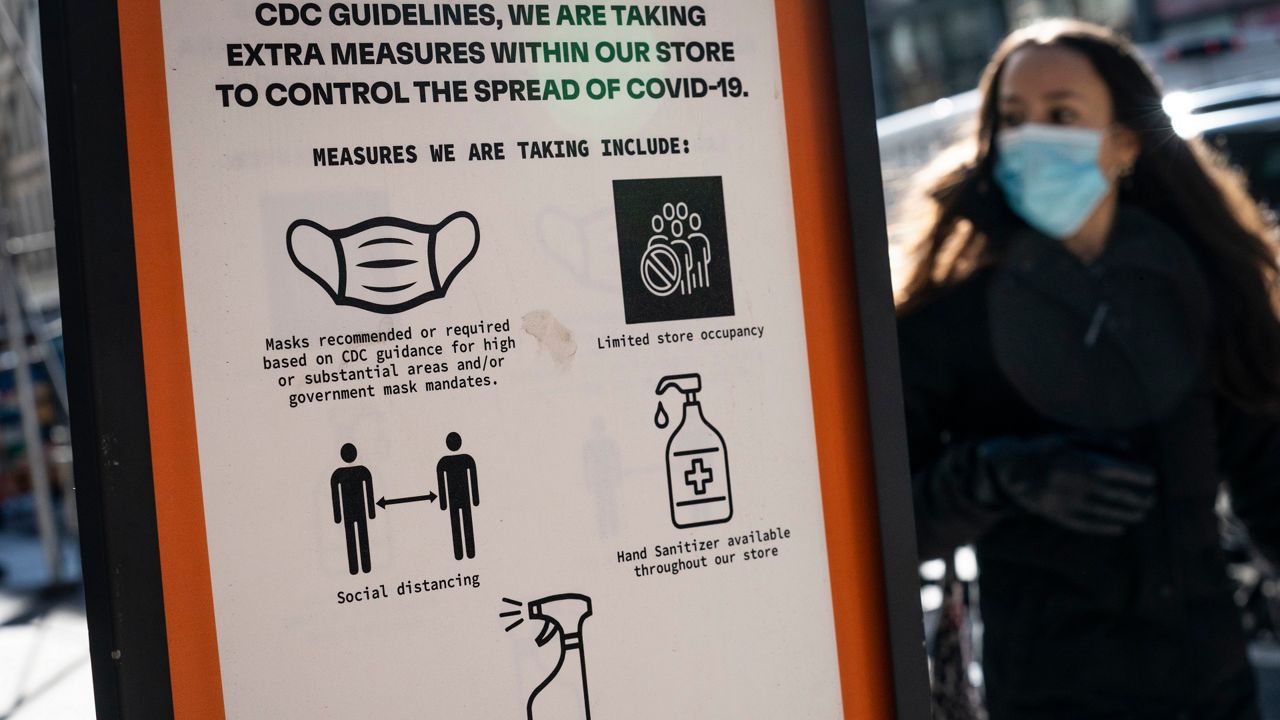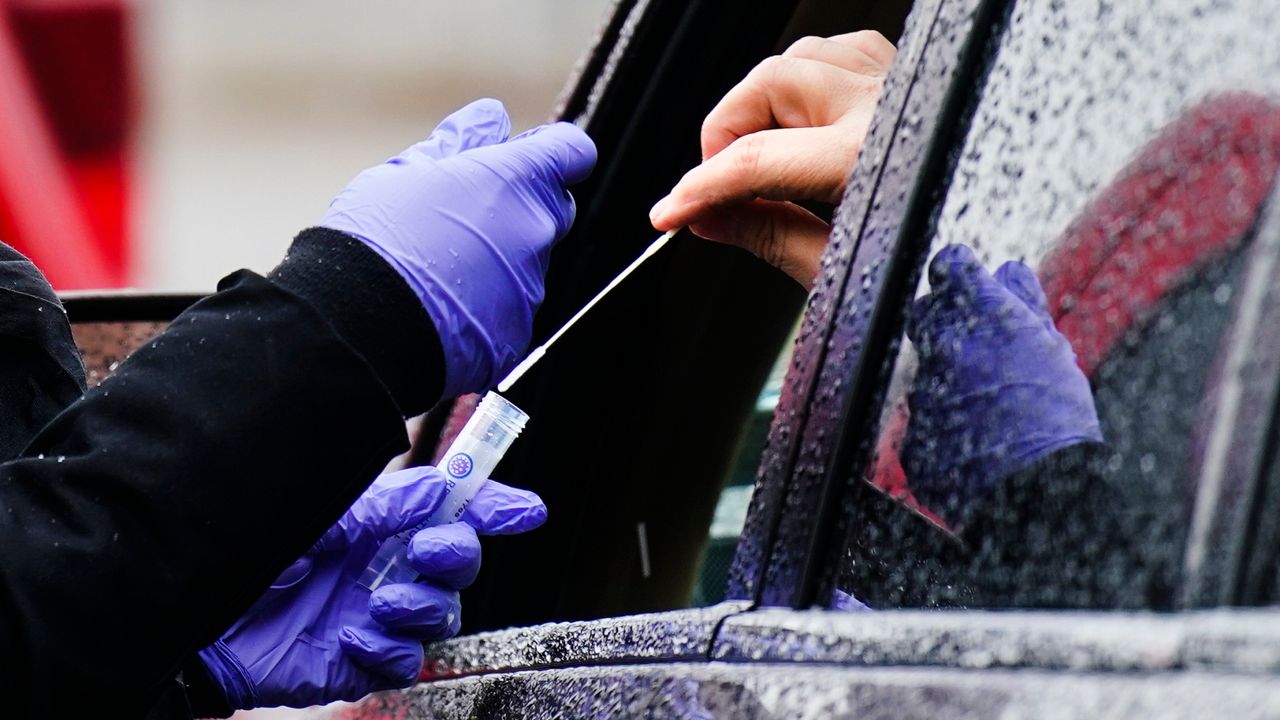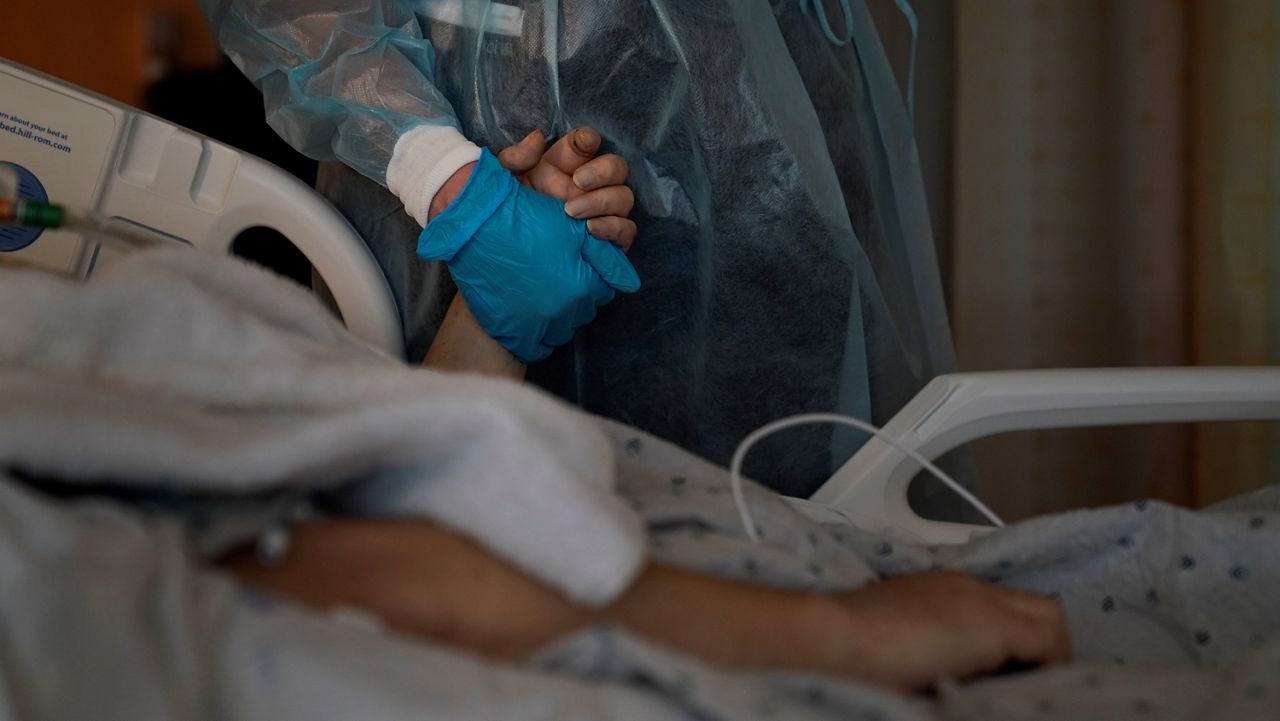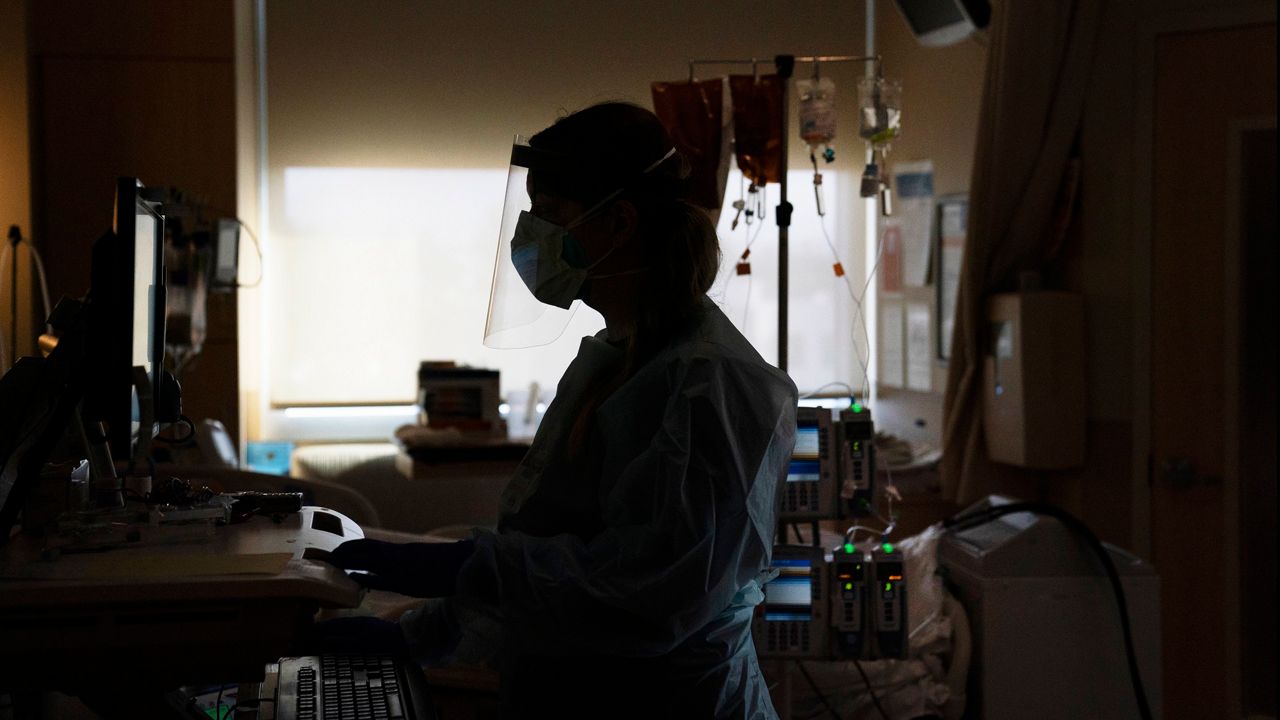MILWAUKEE — Before the pandemic, Cynthia, a 27-year-old Milwaukee resident, enjoyed camping and being outdoors. She loved her job as a neonatal ICU nurse, where she got to care for others and be a shoulder to lean on in people’s toughest moments. And she spent her free time leaping across the stage as part of a local Irish dancing company.
But seven months after she was diagnosed with COVID-19 in September, Cynthia — who asked to be identified by first name only — is still struggling with the virus’s lasting effects, including fatigue, chest pain and a heart condition known as pericarditis, an inflammation in the tissue around the heart, she explained.
“There's a long way to go to getting back to being the Irish dancer that I used to be,” Cynthia said.
More than 580,000 Wisconsinites have “recovered” from COVID-19, according to the Department of Health Services. But, as cases like Cynthia’s have shown, surviving an infection doesn’t always equal getting back to normal.
Across the state, several hospital systems have opened up specialized clinics to take on patients with lasting symptoms from COVID-19. Ascension, Prevea Health, and Froedtert and the Medical College of Wisconsin — where Cynthia has gotten treatment — all have teams of specialists working with long haulers.
And for patients and providers alike, the growing number of “long-hauler” cases — also referred to as post-acute COVID-19 syndrome — has required some major adjustments in thinking about, and treating, disease. Recovery can be slow; cases can look very different; and many, many questions are still unanswered.
“It’s been unique, because for doctors, physicians and healthcare workers, it's hard for a lot of us to say, ‘I don't know,’” said Dr. Laura Nelson, chief medical officer at Prevea Health. “But that's what we've had to say.”
***
Northeast Wisconsin, where Prevea Health is based, was hit hard early on in the pandemic. And soon enough, Nelson’s team started noticing that not everyone was seeing a speedy recovery.
“We were known as a hotspot,” Nelson said. “And then, when these people were discharged, they were out in the community afterwards. They were coming to primary care saying, ‘I still have symptoms.’”
The Centers for Disease Control and Prevention define “post-COVID conditions” as those lasting more than four weeks after an initial infection. Studies have found that months after a positive test, COVID-19 patients are still at higher risk for a wide range of issues throughout the body — from the lungs to the heart to the brain — even if they weren’t sick enough to be hospitalized at first. Anywhere between 10% and 30% of all COVID-19 patients may suffer from long-lasting symptoms, researchers have estimated.
Dr. Julie Biller, a pulmonologist who leads the Froedtert & MCW Post COVID-19 Care Program, said shortness of breath and chest pain are some of the most common complaints she sees. Many of the clinic’s patients will say they “feel like their chest (is) on fire,” or, like, there’s broken glass in their lungs when they take a deep breath.
Brain fog, fatigue and insomnia also affect a lot of patients, added Dr. Amrinder Singh, a family medicine doctor with Ascension Medical Group. Singh leads Ascension’s post-acute COVID clinic in Mount Pleasant; the medical group has similar programs in Oak Creek and Milwaukee.
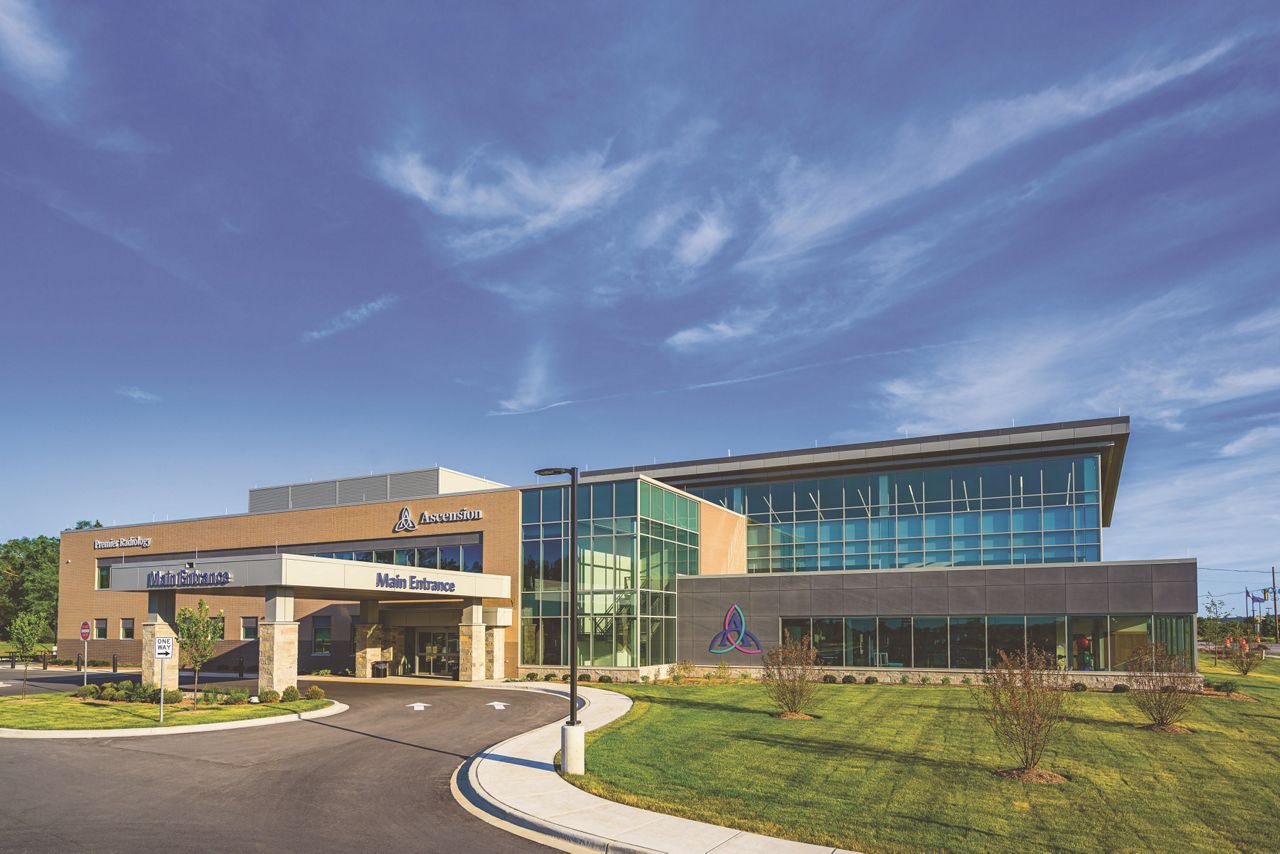
Mental health challenges, including depression and anxiety, are also prevalent among long haulers, though it’s unclear whether that’s a result of the virus acting on brain tissue or a response to the overall stresses of living through COVID-19.
The mental and physical exhaustion can make even seemingly simple tasks, like doing laundry or walking up stairs, feel like too much for patients, providers said.
“Some of them have said, you know, ‘I used to go walk my dog two miles a night after work and I can't do that because I don't have the energy, or I get short of breath. Or ‘I used to play soccer in the yard with my children,’” Nelson said. “Just basic things that you and I may take for granted.”
The wide range of these long-haul symptoms is a challenge on its own, doctors said. Their clinics have brought on a variety of different specialists — from physical therapists to neurologists to psychiatrists — to address the many ways that post-acute COVID-19 can show up; Singh said the goal is to be a “one-stop shop” for patients.
And the types of patients who develop long-lasting symptoms can be counterintuitive. Unlike what she’d expected, Biller said most of the clinic’s patients have been under 65 and didn’t have long hospital stays for their initial infections.
“The difference with this is that many, many of these people have been very active, healthy people until they developed the COVID infection,” Biller said.
***
For Cynthia, the initial COVID-19 illness didn’t come as much of a surprise. She and her partner are both frontline workers, so she thought testing positive “was just a matter of when.”
And in the beginning, her sickness didn’t feel too dramatic: She developed a cough and runny nose, and remembers her beloved morning coffee tasting “like butter and water.”
But after those first two weeks — at a time when most mild COVID-19 cases tend to resolve — Cynthia’s symptoms started to spiral. She was faced with overwhelming fatigue and an intense cough, to the point where she could barely get out of bed.
“Even the idea of going back to work was overwhelming, because I could barely walk a block outside and be able to tolerate that without feeling lightheaded, dizzy, or honestly, just in pain,” Cynthia said.
After two emergency room visits and a “game of cat and mouse” trying to figure out why she wasn’t getting better, Cynthia was referred to Dr. Biller and eventually diagnosed with pericarditis.
With long-haul patients like Cynthia, dealing with these symptoms can be “some of the most stressful times in their whole lives,” Singh pointed out. A big part of helping patients comes down to reassuring them and not waving away their concerns, doctors said.
“One of the biggest things that we do, and I don't want to minimize this, is that we acknowledge their symptoms and we validate it,” Biller said. “Because, I think, a lot of people have been told, ‘You are recovered, so you should be recovered.’”
As for the treatment itself, well, that depends on the symptoms. The root cause of long COVID-19 is still a mystery, so Nelson said her team focuses on triaging whatever major issues are most important to patients.
For Cynthia, a combination of physical therapy and medication has helped make slow but steady progress, so that now she’s able to go back to a couple shortened work shifts per week and exercise for longer periods of time.
For others, Nelson said, things like nighttime oxygen, steroids or memory exercises can be helpful — though there’s not often a quick fix.
“The No. 1 one thing we've learned is, most people are getting better, so that's encouraging,” Nelson said. “And then the second thing is, a lot of times it's just patience; sticking with it.”
***
When it comes to understanding long COVID-19 symptoms and figuring out treatments, there’s a lot left to learn. “I feel like we’re still babies,” Biller said.
Figuring out what actually leads to these lingering cases would be a big help in treating, or even preventing, long-haul symptoms, doctors said.
It’s possible that post-acute symptoms stem from some small amount of coronavirus lingering in the body, Nelson said. Or, another theory suggests, the immune system might be trying to fight off the virus even after it’s gone, leading to continued inflammation in the body.
“Is it your immune system overreacting, or is it the virus still active?,” Nelson said. “If we knew what is causing some people to have these long-term symptoms, that would just help us so much.”
As a provider, dealing with the uncertainty has been “difficult, to say the least,” Singh said. At first, he said dealing with an influx of patients without having all the answers about their condition was a bit overwhelming.
But the collaboration between scientists and doctors to crack the mysteries of post-acute COVID-19 has been a hopeful spot, doctors said.
“What you see is, it's not just us here in Racine, or us just in Wisconsin. And it's not just us in the United States,” Singh said. “It's throughout the world. People are trying to find answers, they're trying to help each other.”“What you see is, it's not just us here in Racine, or us just in Wisconsin. And it's not just us in the United States,” Singh said. “It's throughout the world. People are trying to find answers, they're trying to help each other.”
In the same way that scientists came together to develop life-saving vaccines at record speed, Biller hopes the global community can collaborate on more solutions for long COVID-19 cases. The Froedtert & MCW clinic is working on research as well as treating patients.
But in the meantime, she said, patience is key in helping long haulers through the recovery process. And as the world starts to look toward a “new normal” with vaccines rolling out, she emphasized that not everyone will be back to their old selves right away.
“Gradually people are getting better,” Biller said. “But that is different than people normalizing, and going back to exactly what they were before having COVID.”
For Cynthia, the ongoing journey of recovery has sometimes been frustrating. Going from a healthy 27-year-old to someone with a debilitating condition has kept her from working full-time at the job she loves, which she described as “part of my identity and my passion.”
But by leaning on her faith — and her support system of friends, family and other long-haul patients — she’s been able to accept that she may not be the same person she was before COVID-19. Instead of searching for answers, which can be hard to find for a new and complicated illness, she said she’s now working toward a different goal: To find peace.
“When you're learning how to cope with a chronic illness, there's days where you're going to grieve. I grieve the loss of my identity, who I used to be,” Cynthia said. “[But] when you focus on things that are step-by-step, you're able to overcome those small barriers and look toward things for the future. Even if that little step is walking to the mailbox and back.”
The clinics at Prevea and Ascension are open to those who do not have primary care providers in their networks. To discuss getting started with one of Prevea’s COVID-19 recovery clinics, call (920) 846‐8187 for the Oconto County location or (920) 272-3540 for Brown County and the Lakeshore. To schedule a consultation with Ascension’s post-acute COVID care, call 1-833-660-1642.





